- Area: Kampong Thom Province > Krong Stueng Saen > Sangkat Prey Ta Hu
- | Type: Ancient Remains & Temples
Also known as Wat Indry Samvorak or Entri Sam Voreak Pagoda, it houses a collection of remains from an ancient site/s. The monastery is quite large and well established, apparently dating to the 17th century by some reports. On the monastery grounds, a special area has been created to present some of the ancient remains, some of which may come from the 9th-century Kdei Chas site according to one report including beautiful pedestals, while other remains include a later era decorated door column fragments, while further remains from even later eras again include ornate sema stones and wooden Buddha statues.
It’s recorded that there are also six lintels at the site, but the pagoda, assuming that’s where they are, was locked tight on the last visit. It’s noted that these lintels came from Wat Maha and Prei Kuk (Parmentier 1913). An inscribed stele was also located here as noted further below.
Update: recently returning to the site in 05/22 I was able to look inside the monastery but there are no records of lintels, so, I wonder if the old French notes had confused this site with the nearby Wat Slaeng or they were removed sometime after that report.
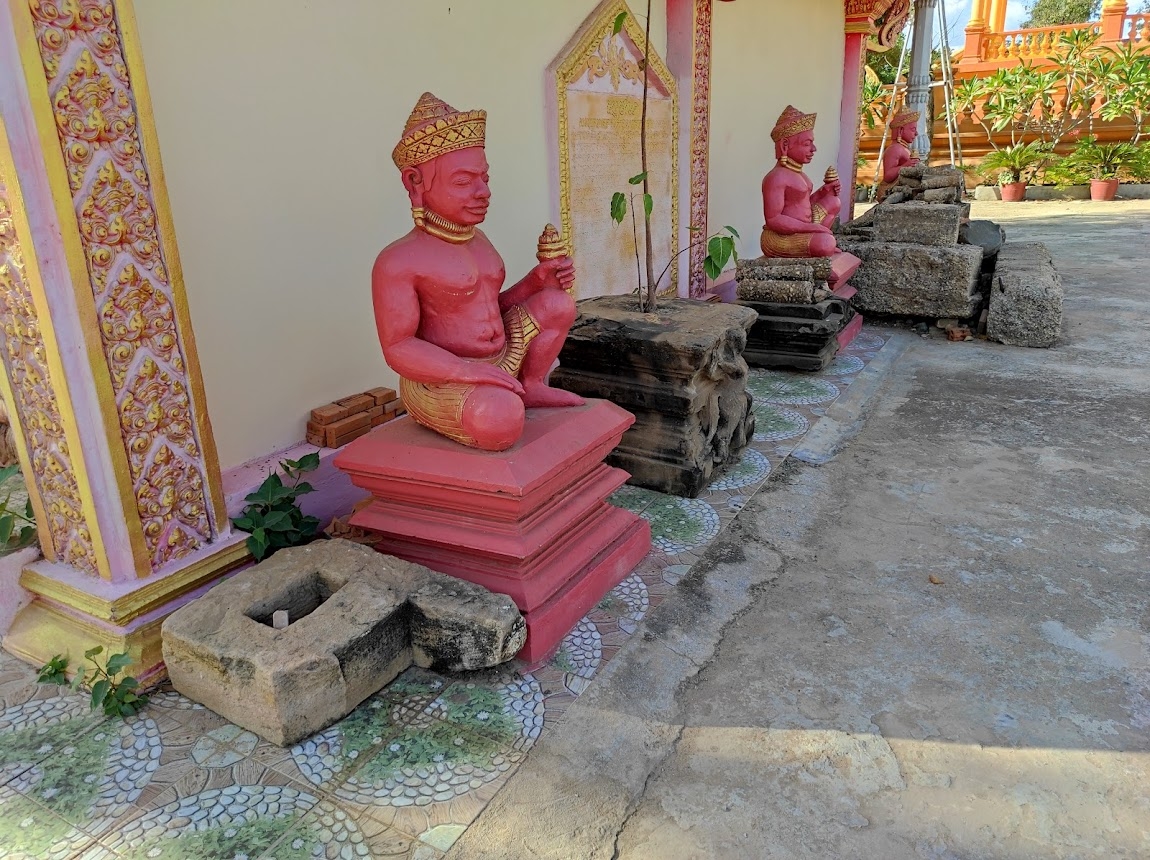
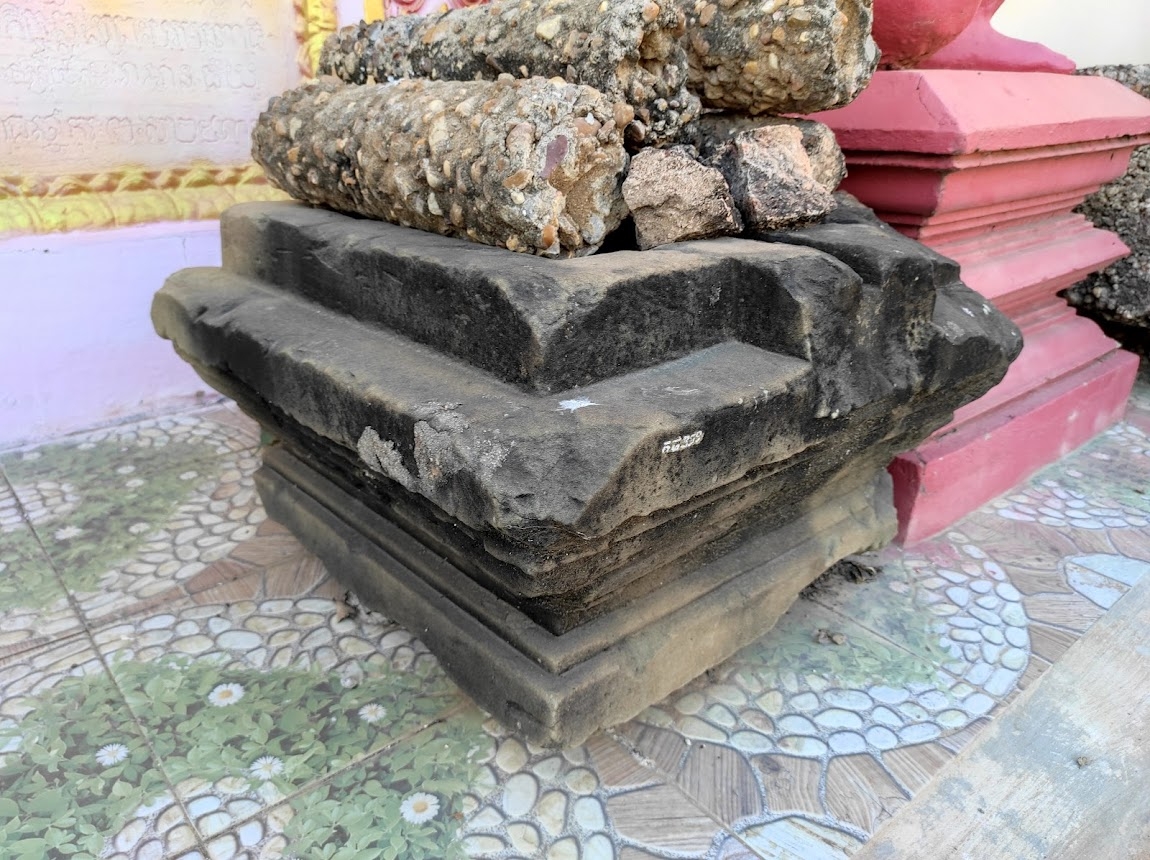
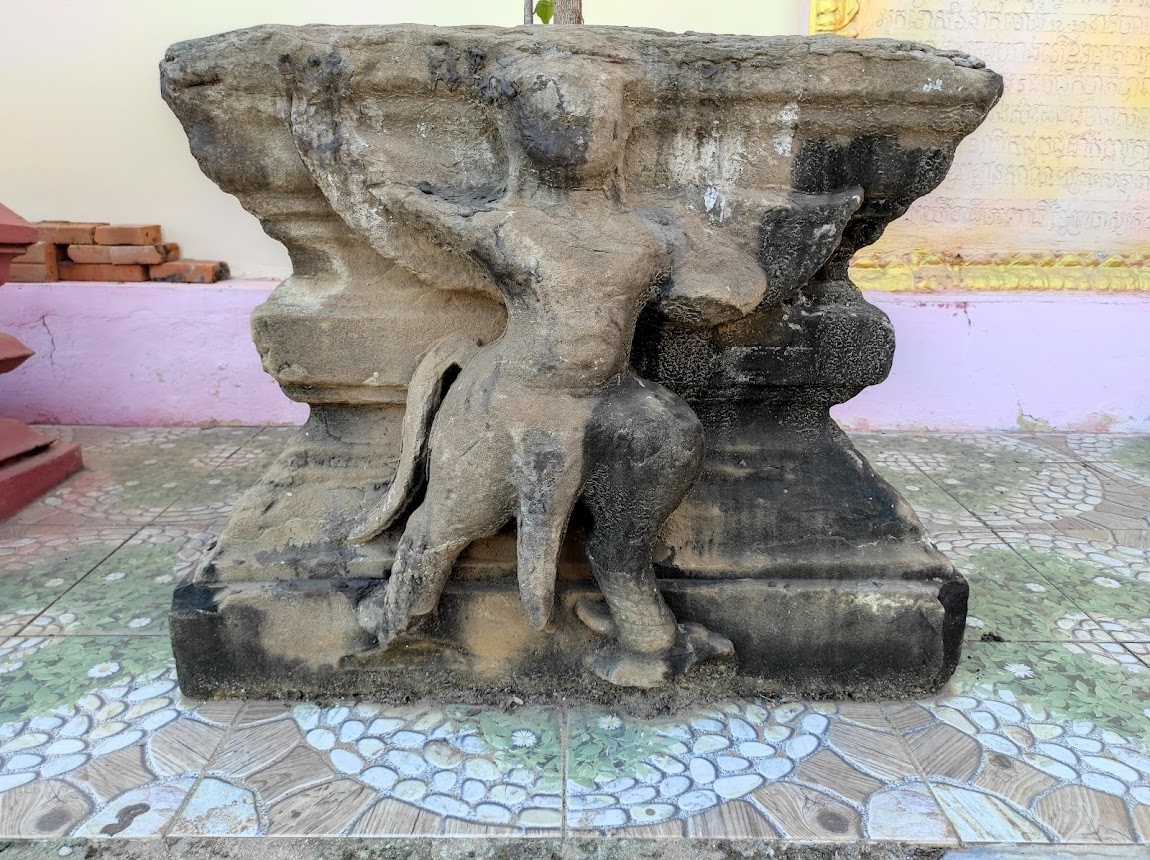
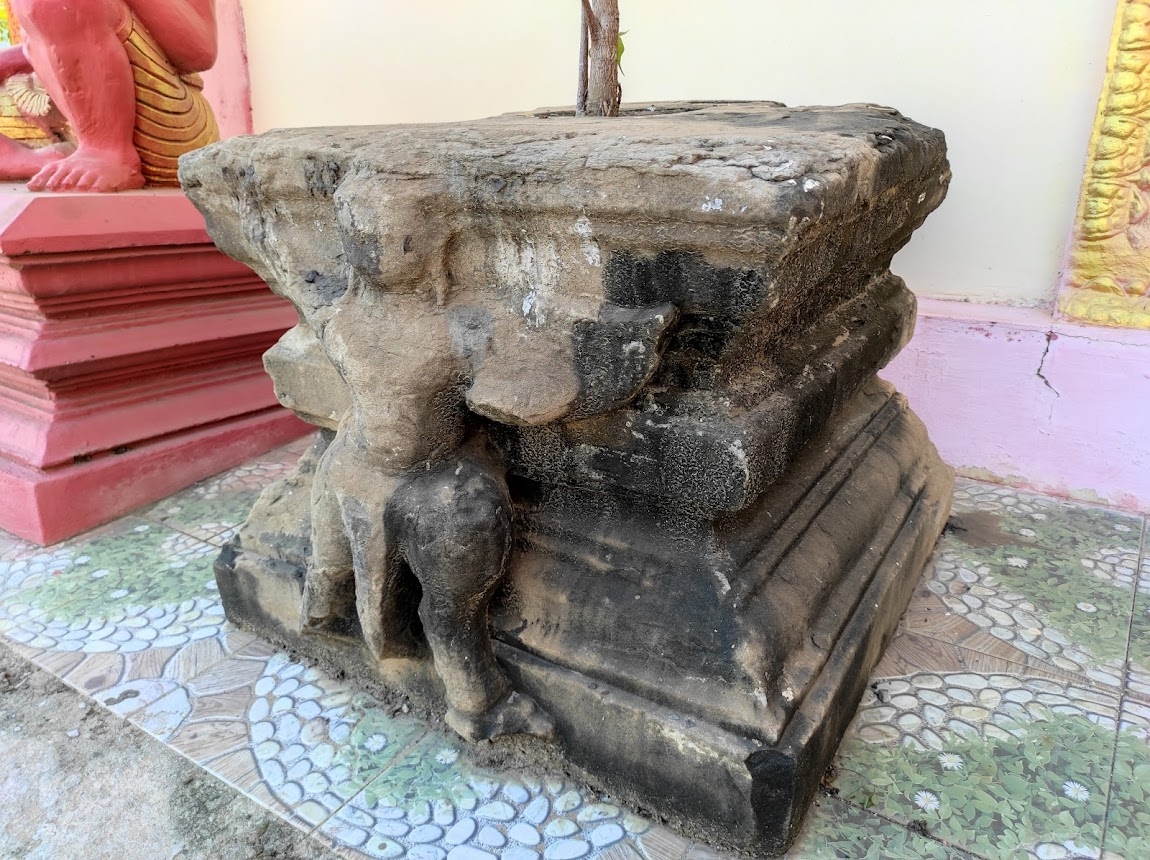
Sema stones
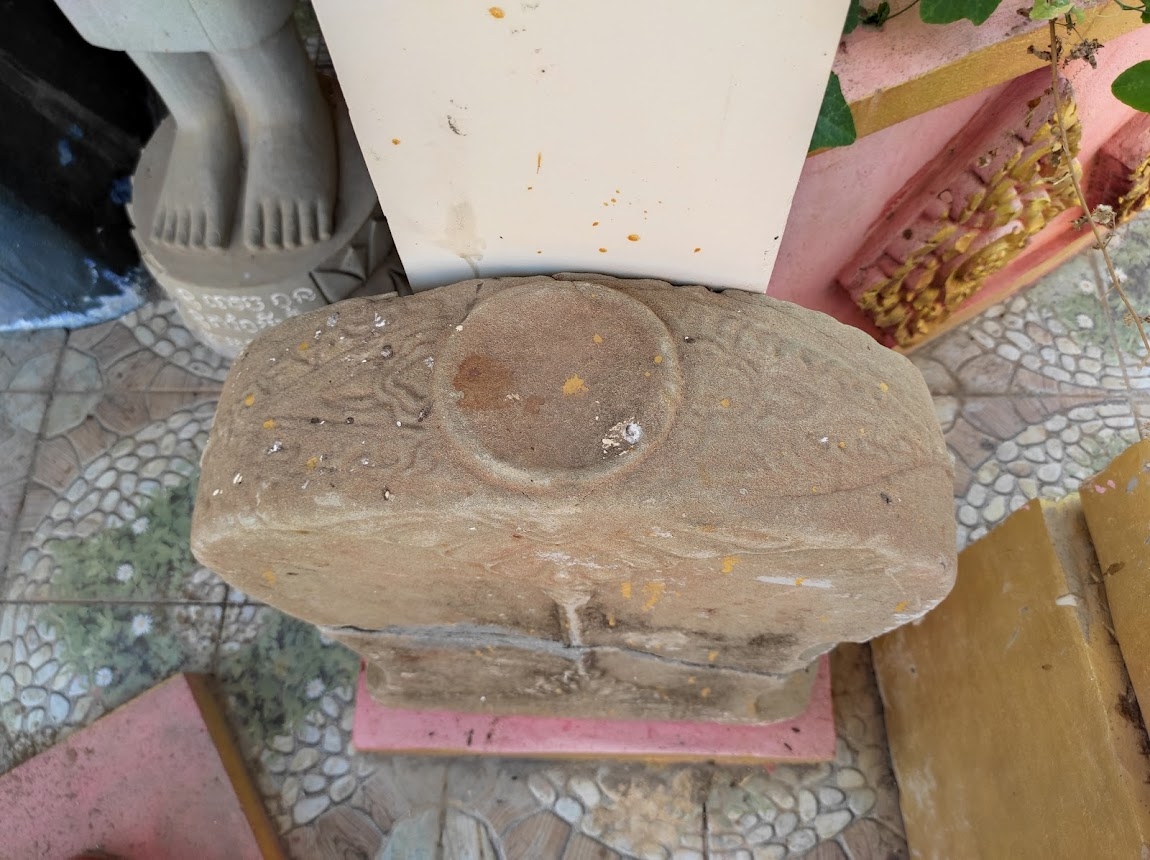
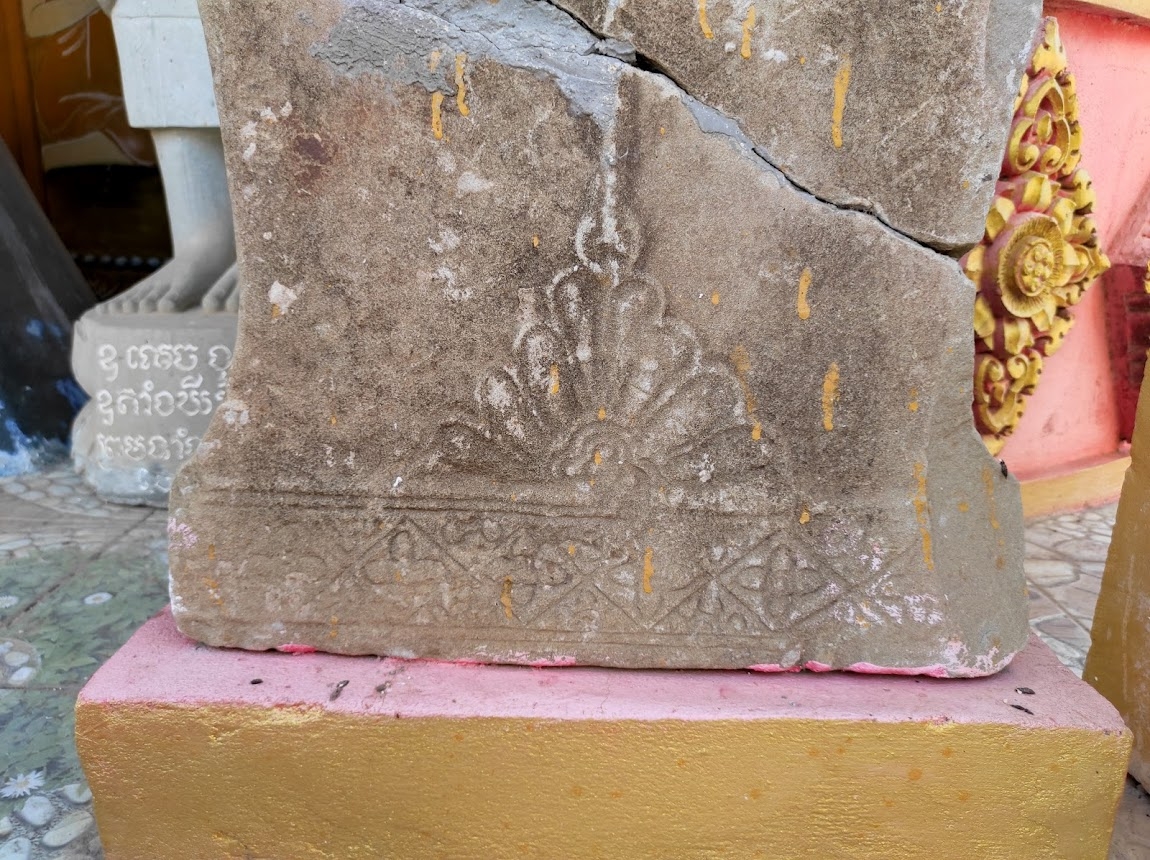
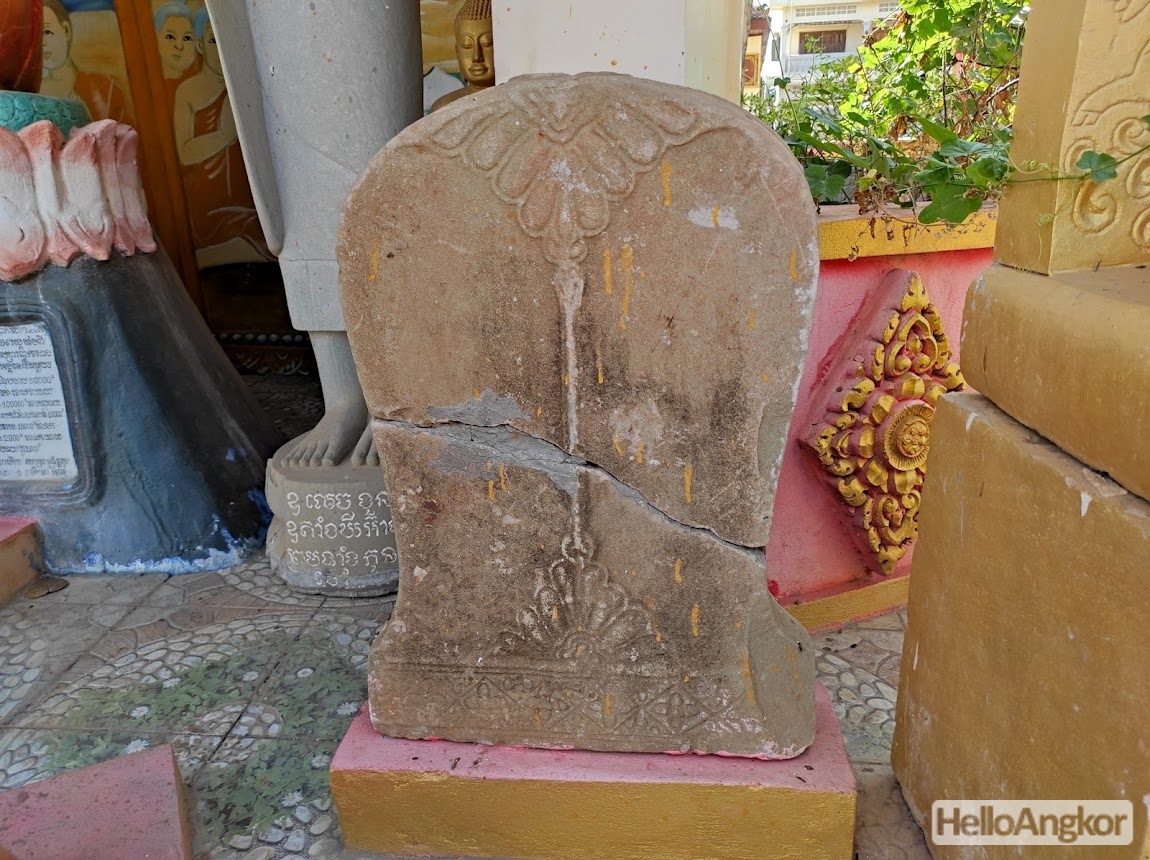
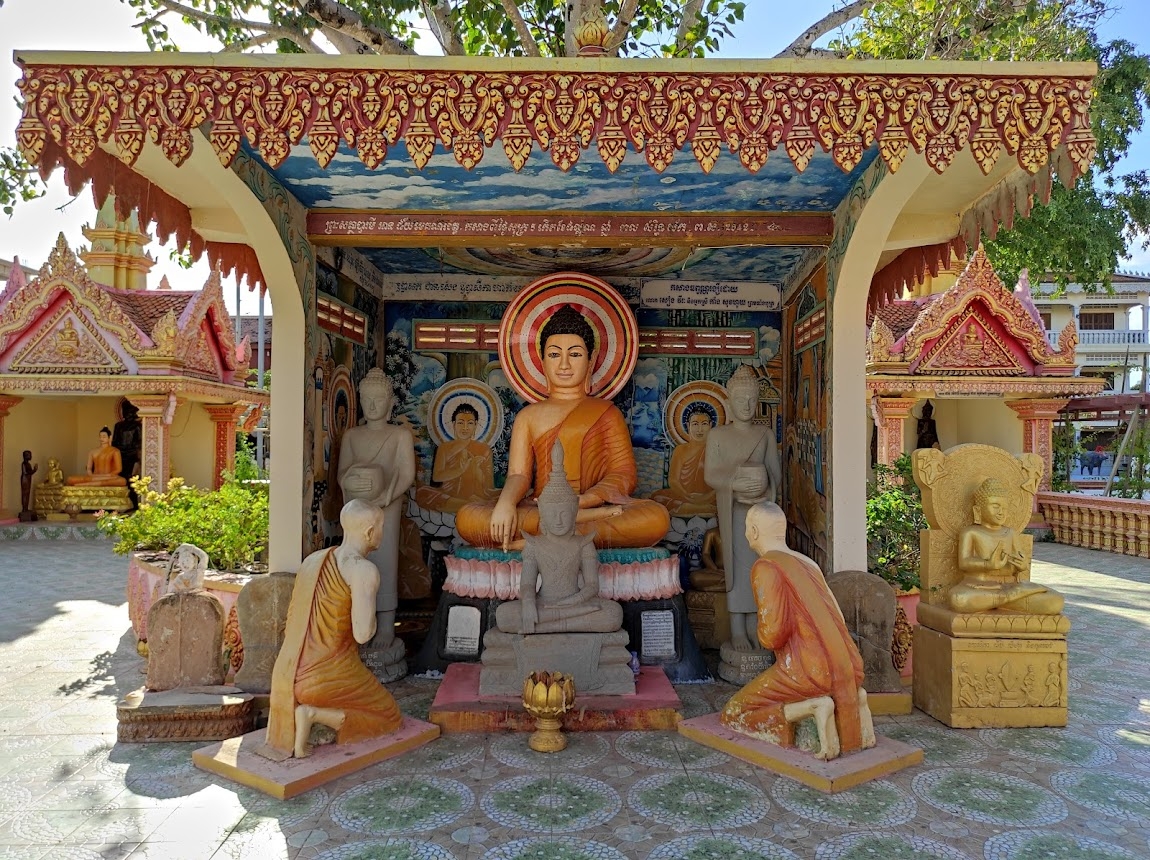
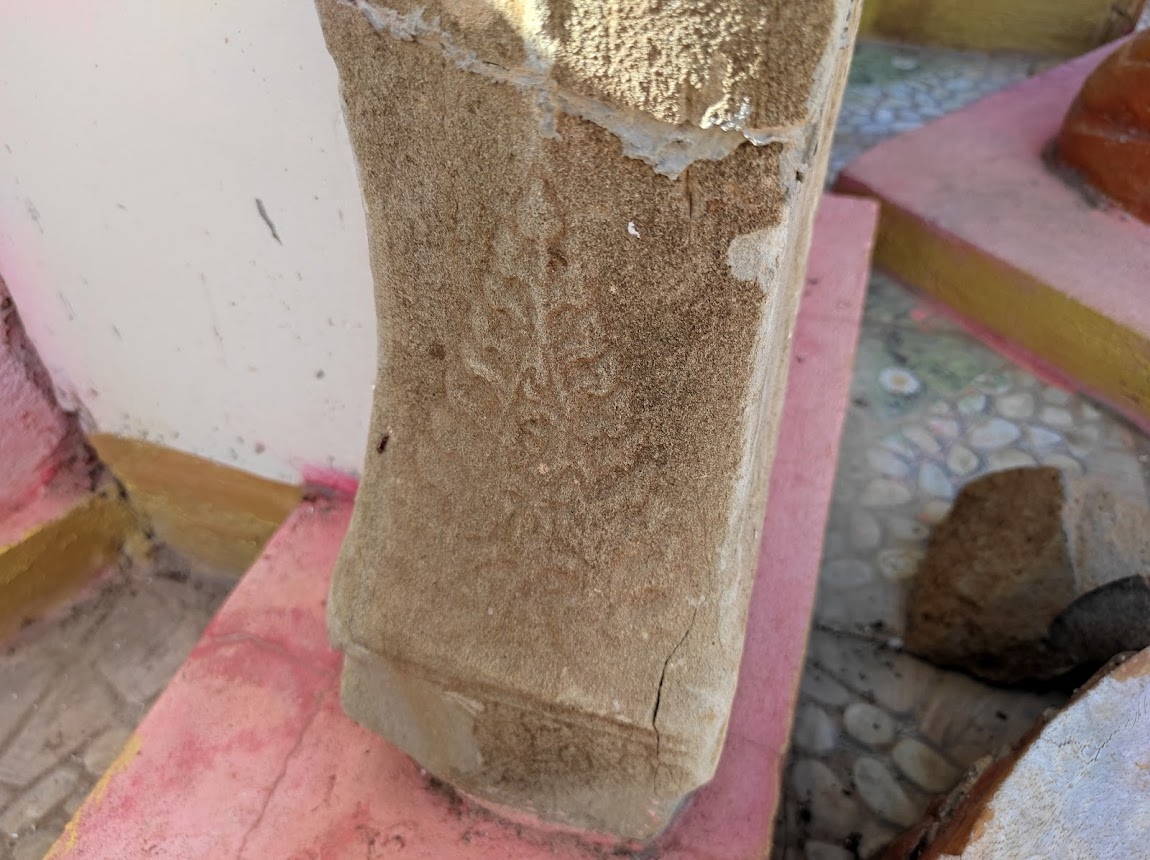
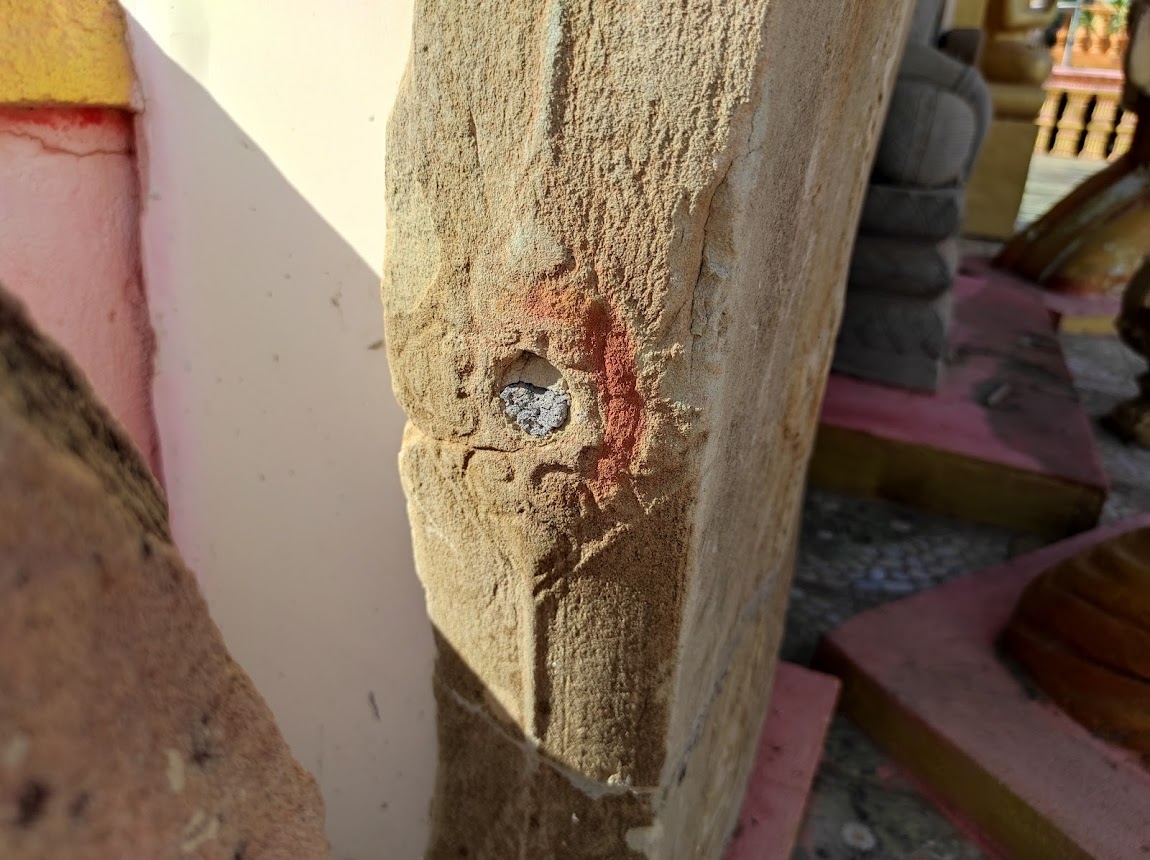
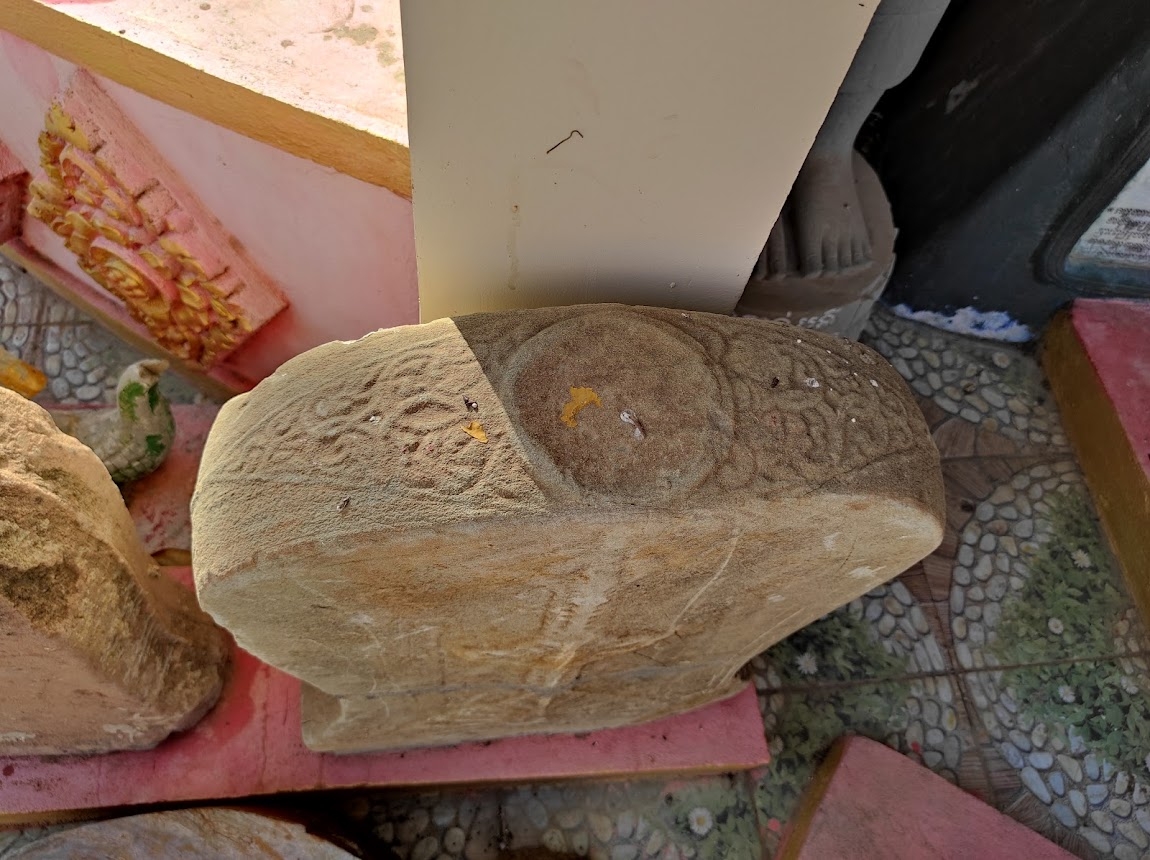
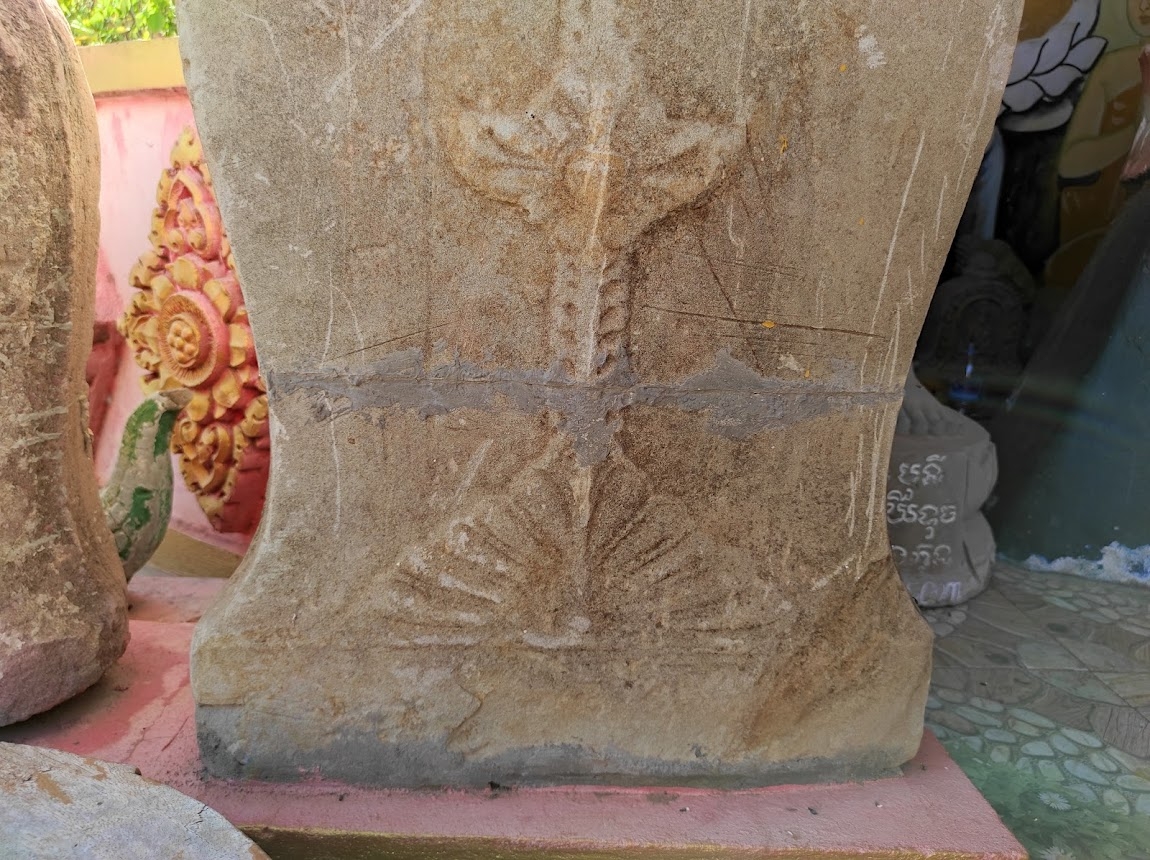
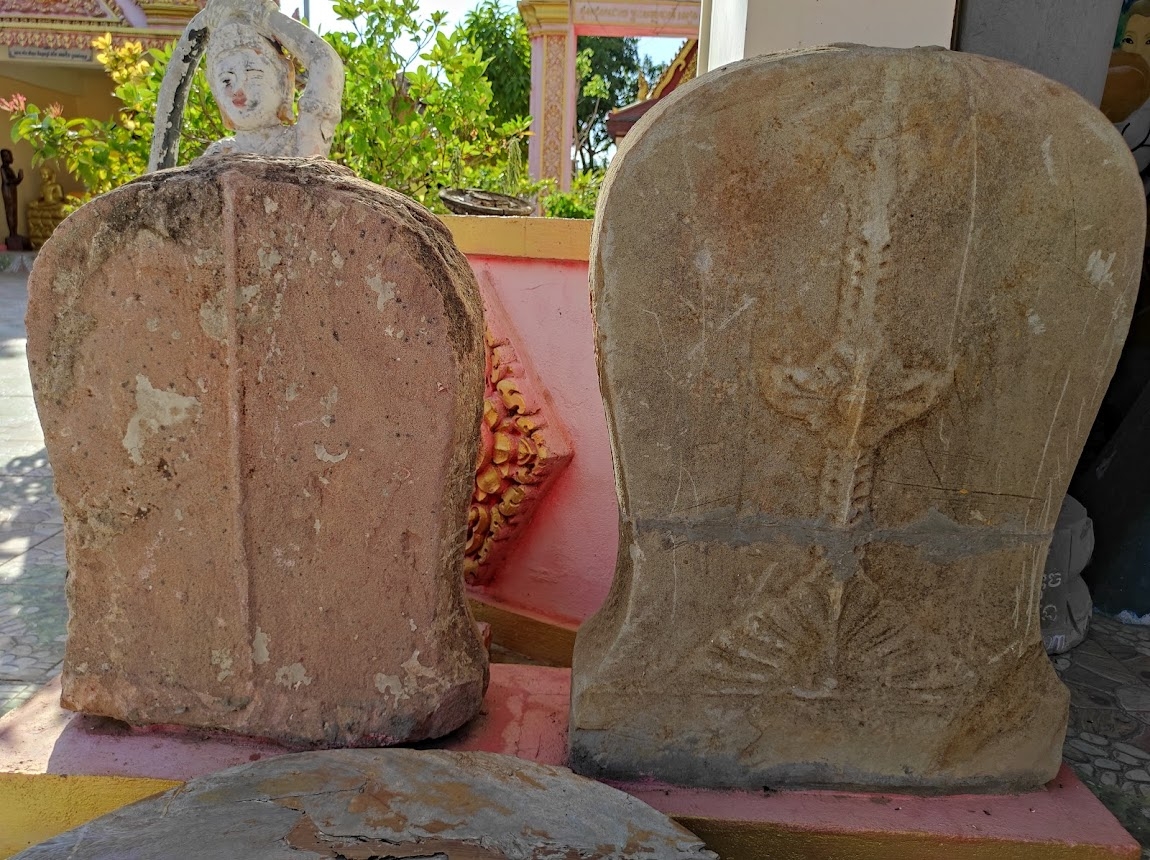
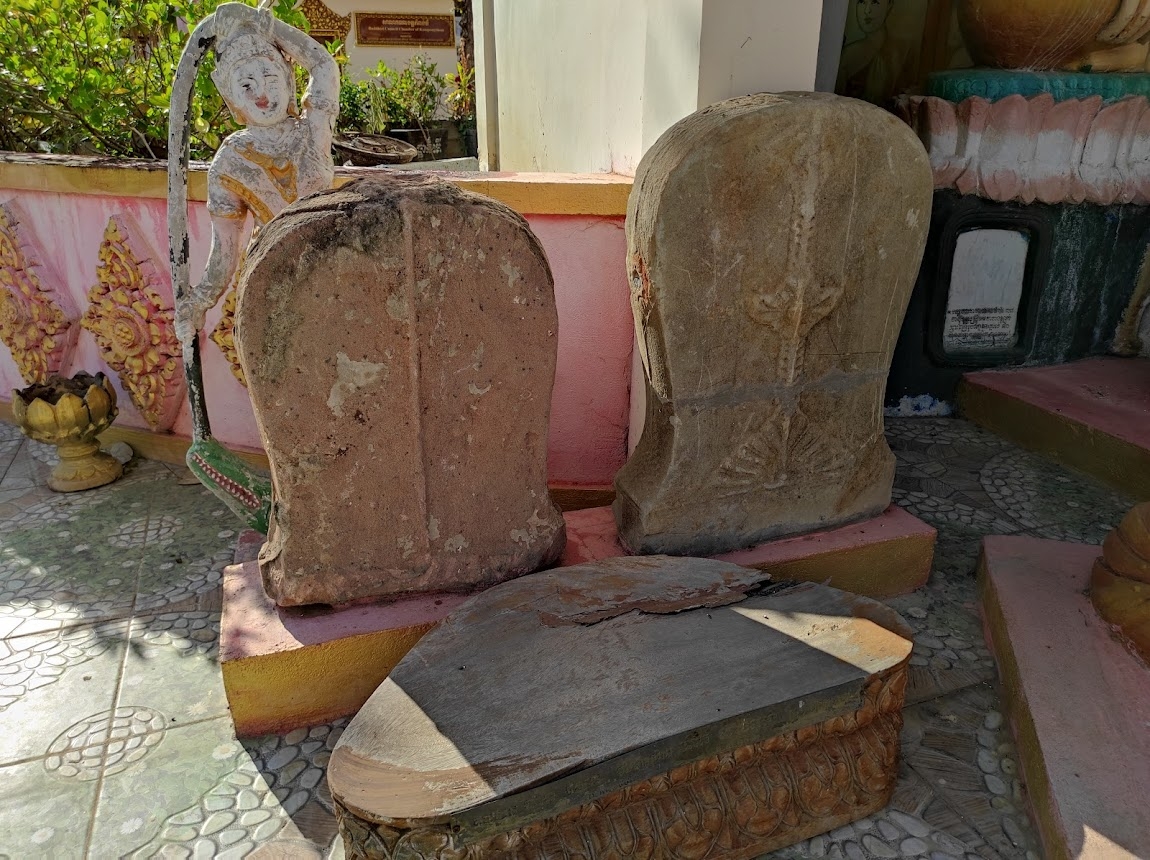
Buddha statues
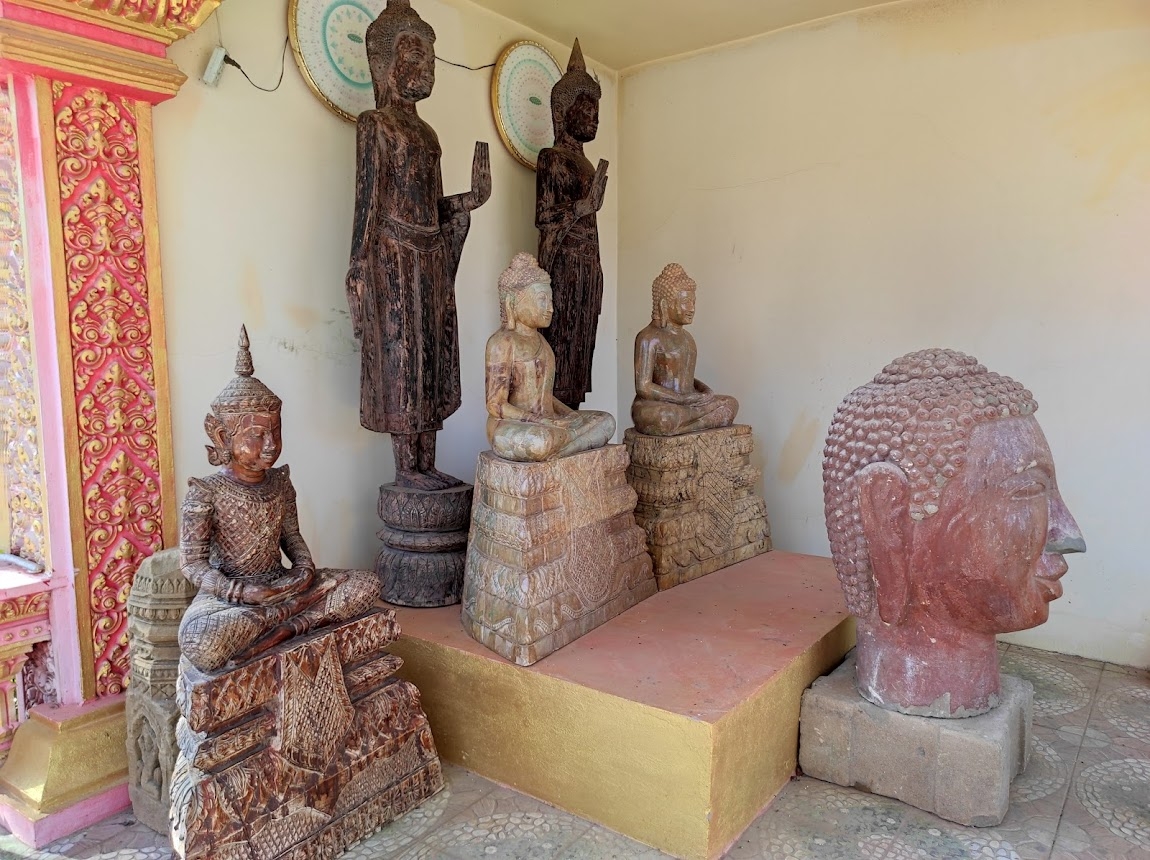
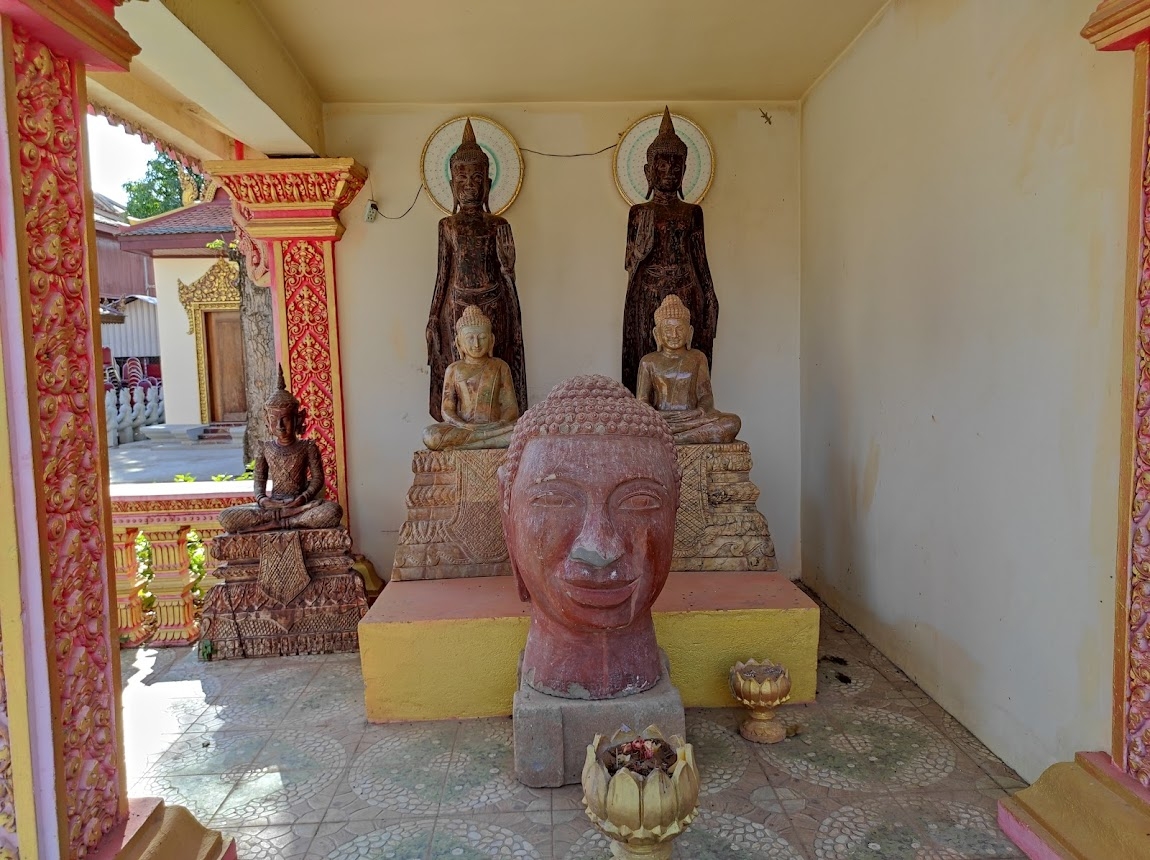
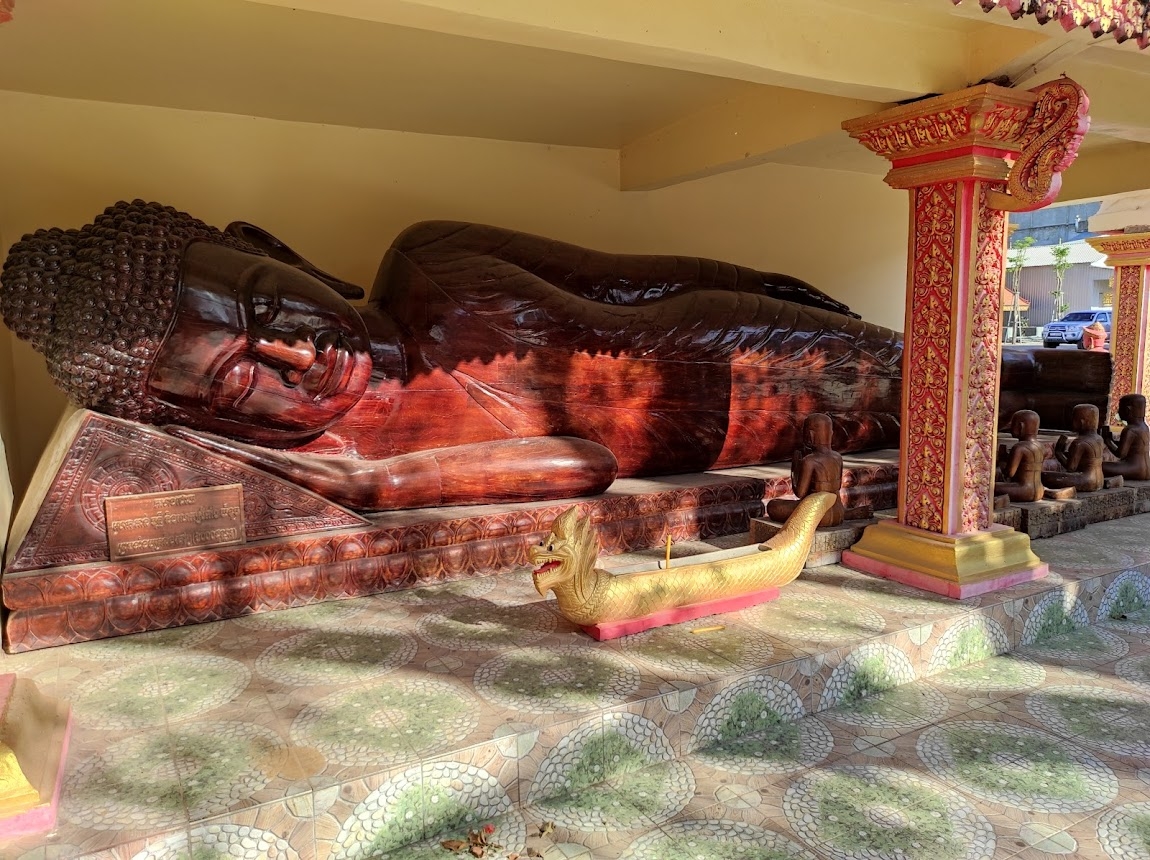
Decorated door column
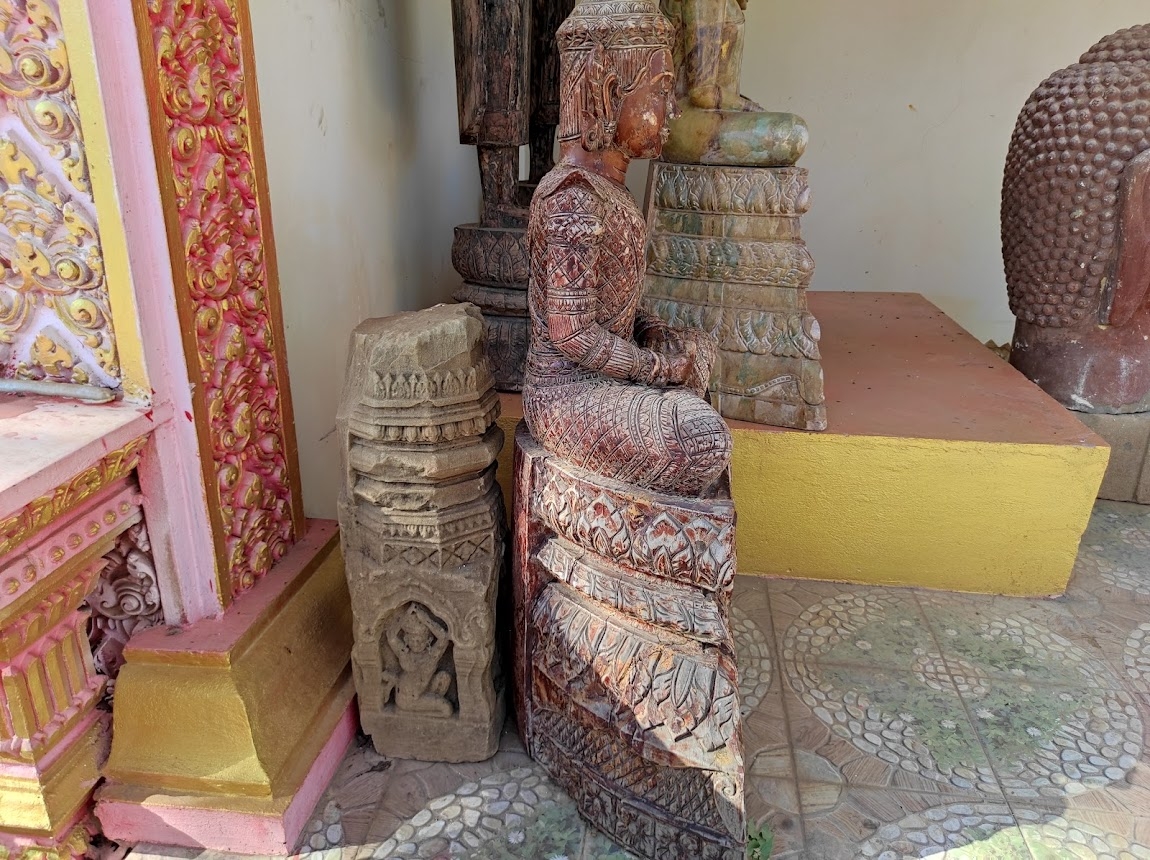
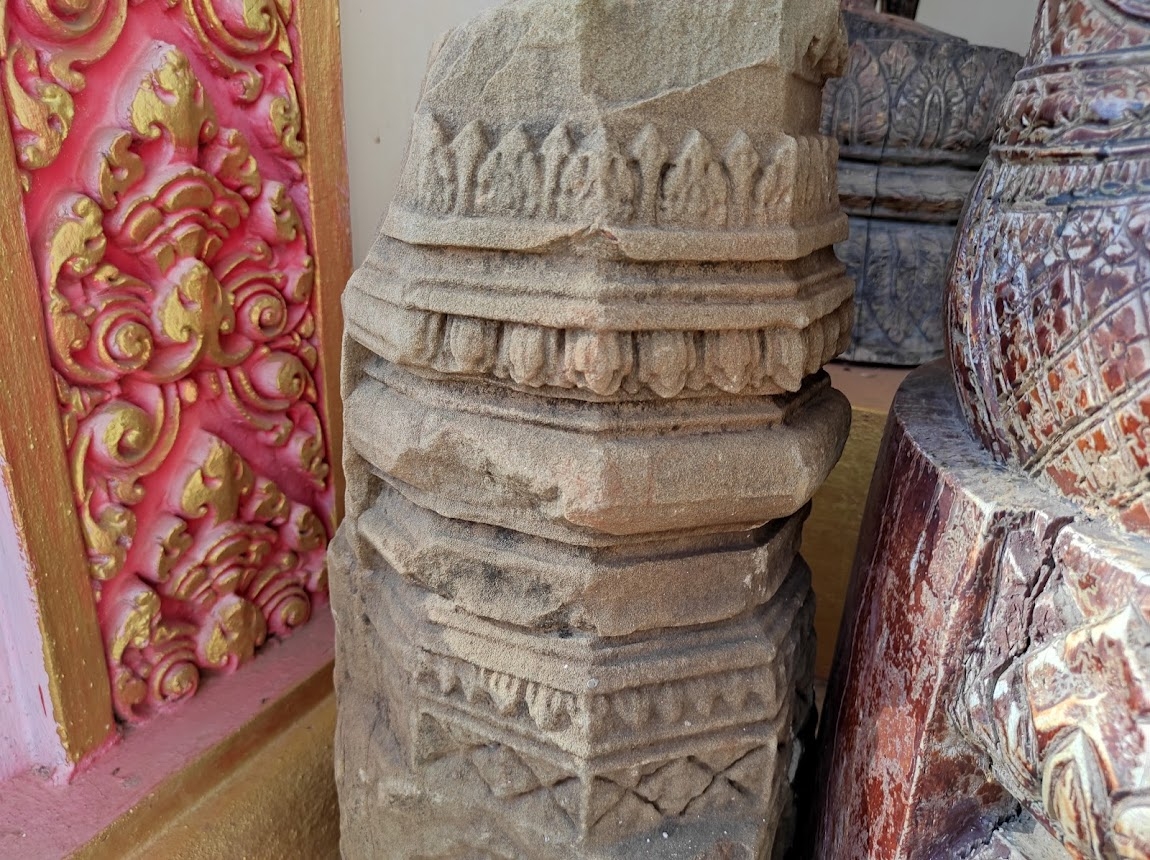
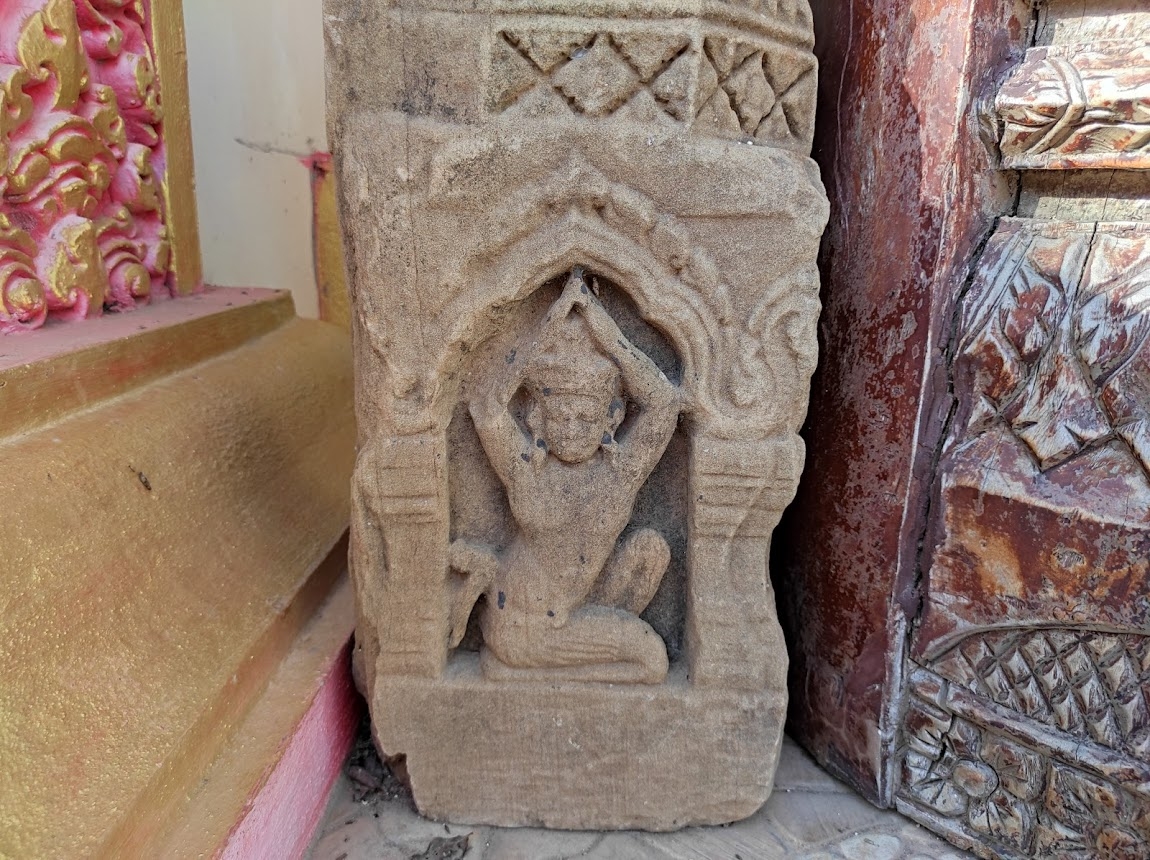
Update 05/22: New murals being added inside the main pagoda
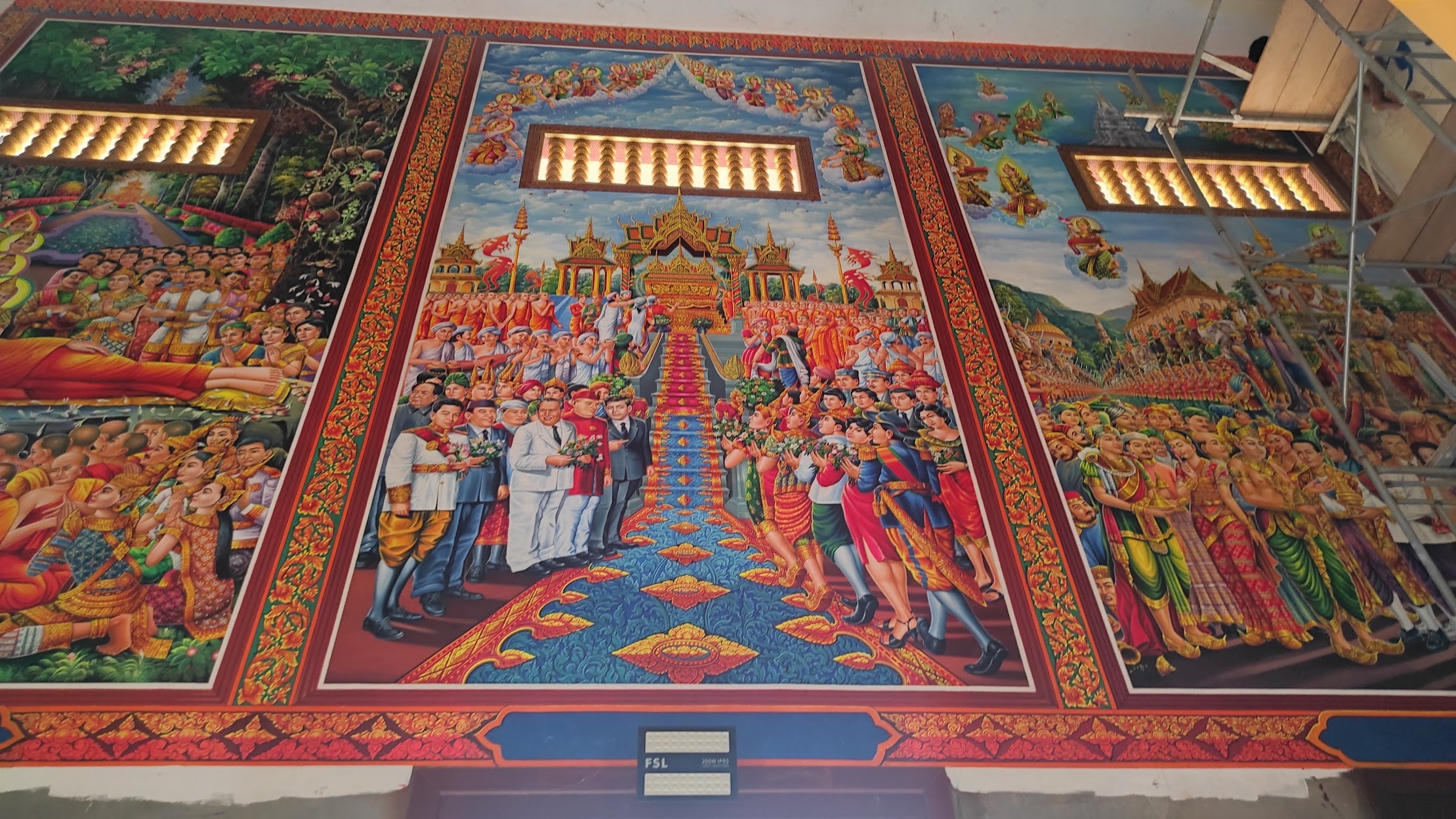
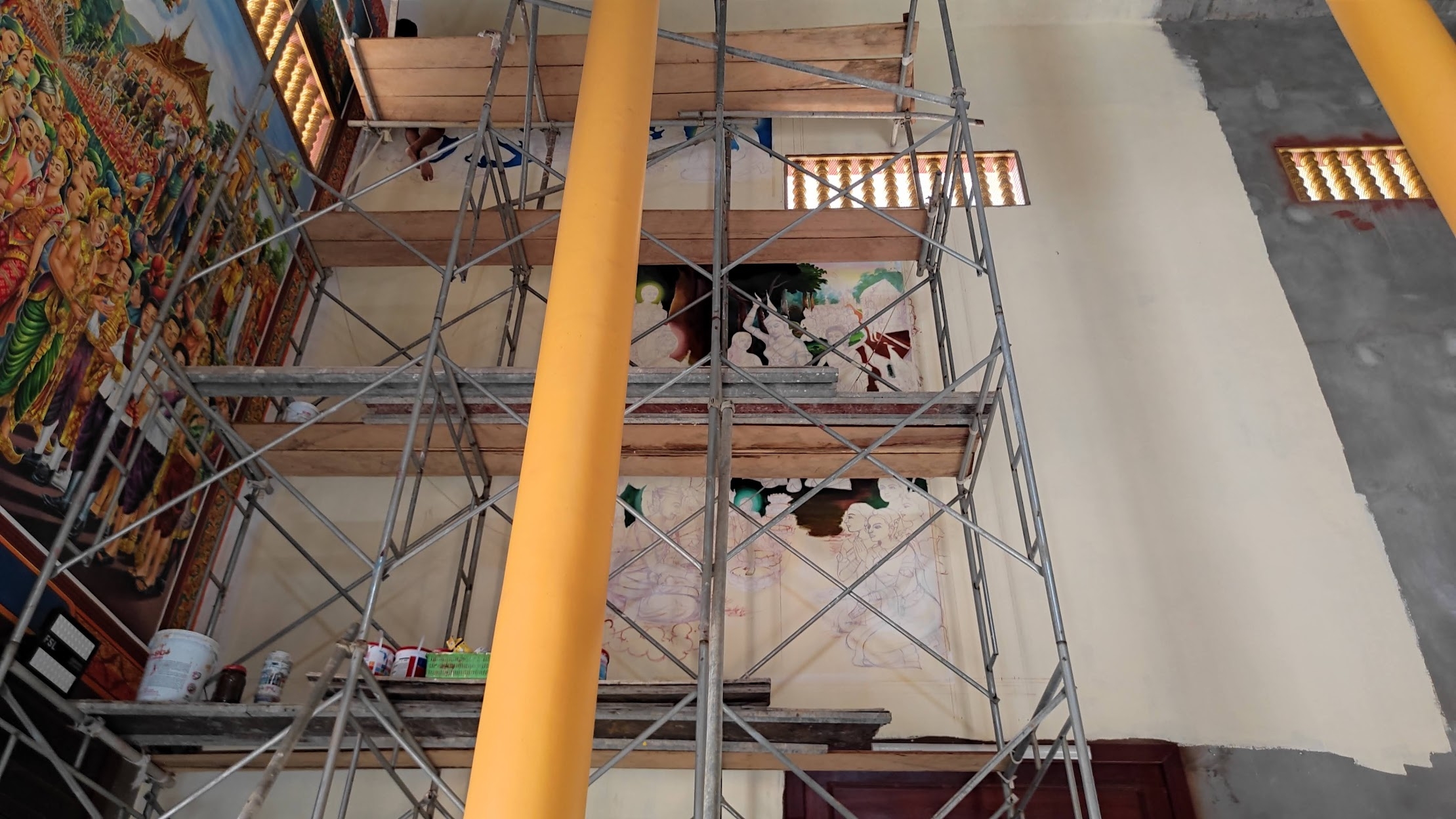
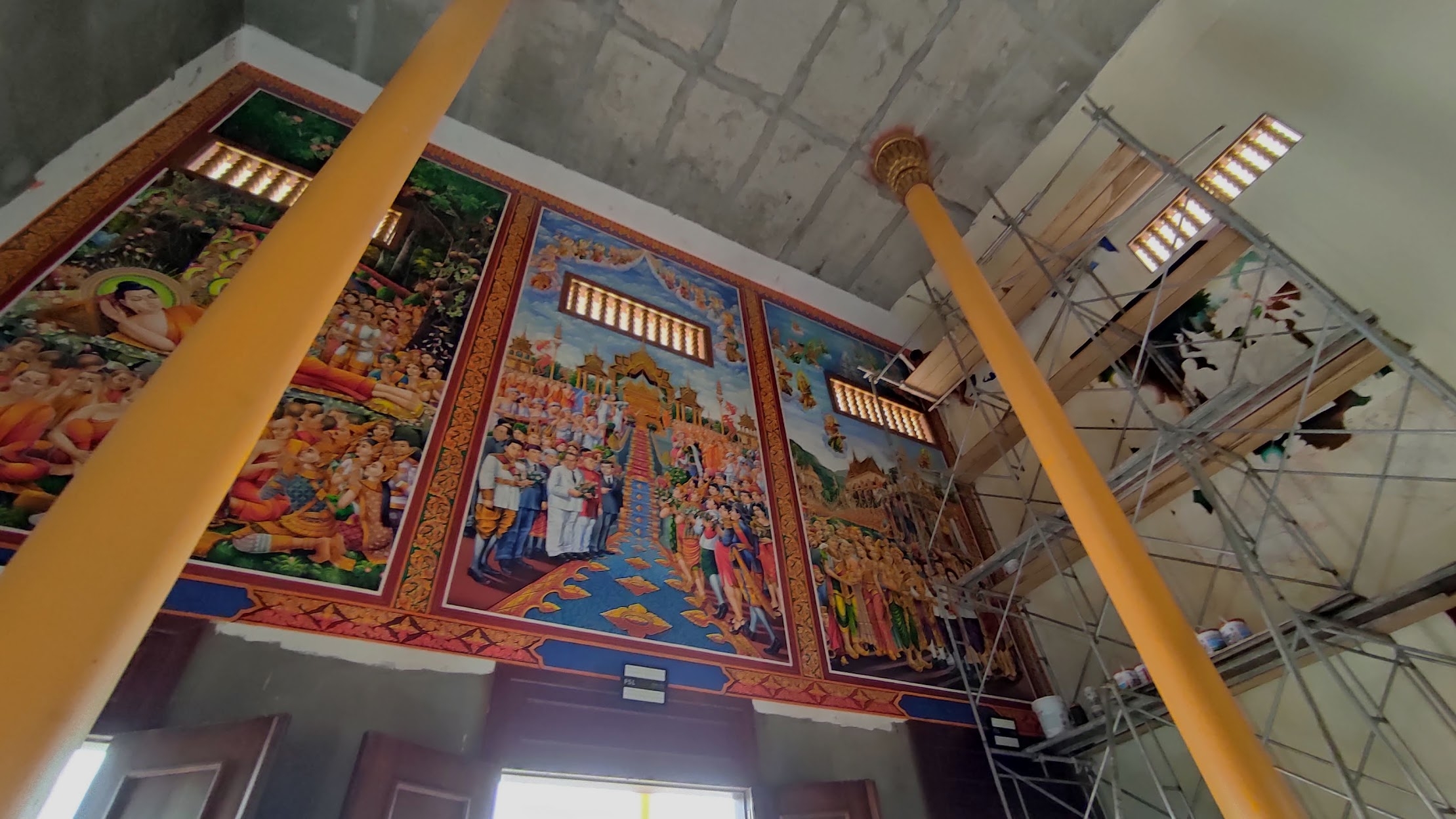
Inscriptions
- K. 444 – a four-sided stele with 27 + 33 + 28 + 13 lines of Khmer text – IC II, p. 62 ; NIC II-III, p. 130 – As noted by G. Coedes – “It is an edict of Jayavarman V, dated 974 AD., relating to the creation of two new castes or corporations (varna), that of the khmuk of the hall of worship (vraḥ kralā arcana) and that of the karmäntara. The edict, promulgated on the occasion of the conclusion of an important ceremony, indicates how were chosen by the royal chaplain Vrah Guru, monks (pamnvās), twenty in number for each caste, who were to constitute the first nucleus, or as the text says, the “root” (müla). It enumerates the prerogatives of these two castes: exemption from certain benefits, obedience to their chiefs (khlon), as well as the rules concerning women who can only enter the service of the upper castes and cannot be included in the property of legacy. As for men, if they are educated, they are responsible for giving education to the capital. The text then relates the ceremony of the investiture of the two groups of twenty disciples, consisting in the delivery of flowers to each of them, in the deposit of a gold leaf in the Kanlon and a silver leaf in the Court of Justice on which was to be engraved the text of the edict, and finally in the erection of steles in the countries coming under the authority of the two new castes. After the usual threats against those who break the edict, and the promises of heavenly happiness to those who execute it, the inscription ends with a list of 12 names, which are those of the roots of one of the two castes, probably from that of the Khmuk, because this list is entirely different from that of the stele of Túol Dan Khčàs (K. 868) which is expressly given as that of the roots of the Karmântara. It is however incomplete, because it should contain 20 names, as is the case in Tuol Dan Khčás. It can be concluded that the stronghold of the Khmuks was in the vicinity of Kompon Thom, while that of the karmäntara was in the region of Sisóphon. The stele of Kök Rosei (K. 175), which does not give a list, seems to have simply recorded this edict following several others from the same period. Without the help of the Kôk Rosei inscription, fairly well preserved towards the middle, and especially that of Túol Dan Khčàs, which is intact, the reading of the Kompoń Thom stele, badly written and fairly worn, would be very incomplete.”
- K. 615/6 – doorframe fragments each with 9 lines of Sanskrit – unpublished
Map
Site Info
- Site Name: Kâmpong Thom (V.) Khmer Name: វត្តកំពង់ធំ
- Reference ID: HA11494 | Posted: January 18, 2021 | Last Update: February 7th, 2023
- Tags/Group: pa, sema, T4, Temples, Wat
- Location: Kampong Thom Province > Krong Stueng Saen > Sangkat Prey Ta Hu
- MoCFA ID: 205
- IK Number: 169
- Inscription Number/s: K. 444, 615, 616

